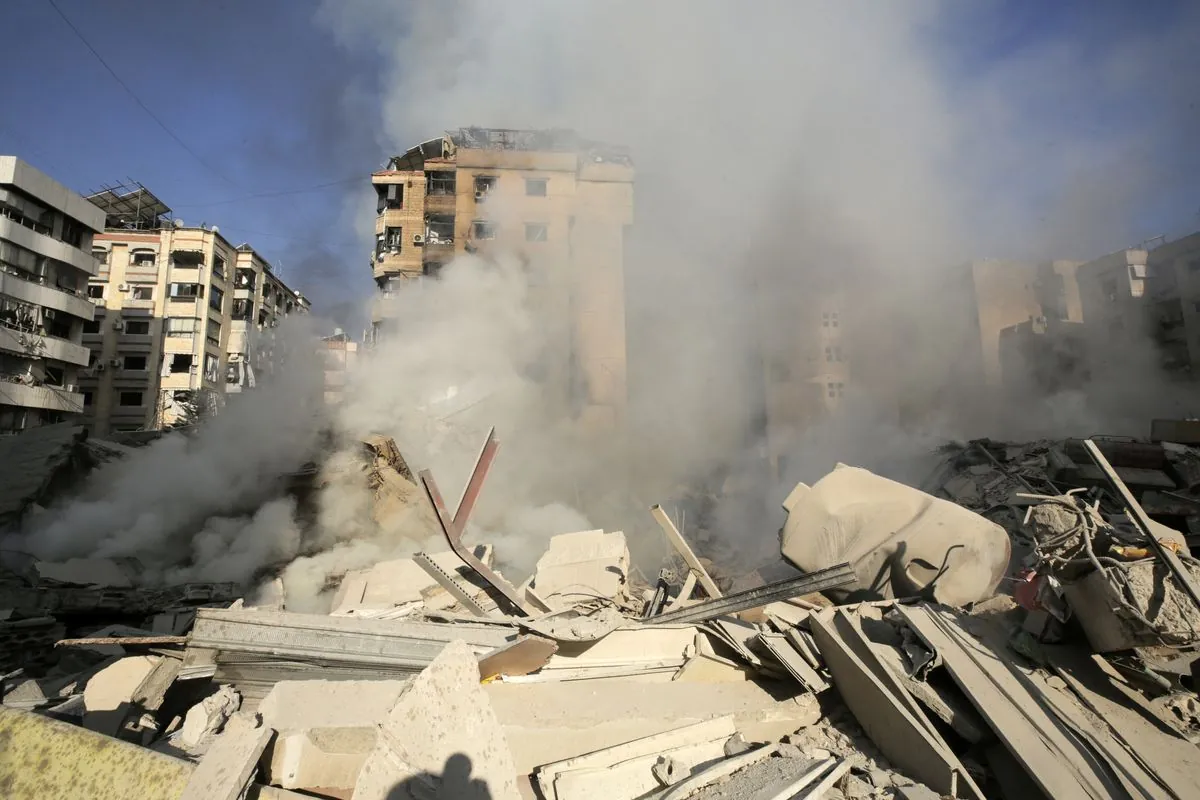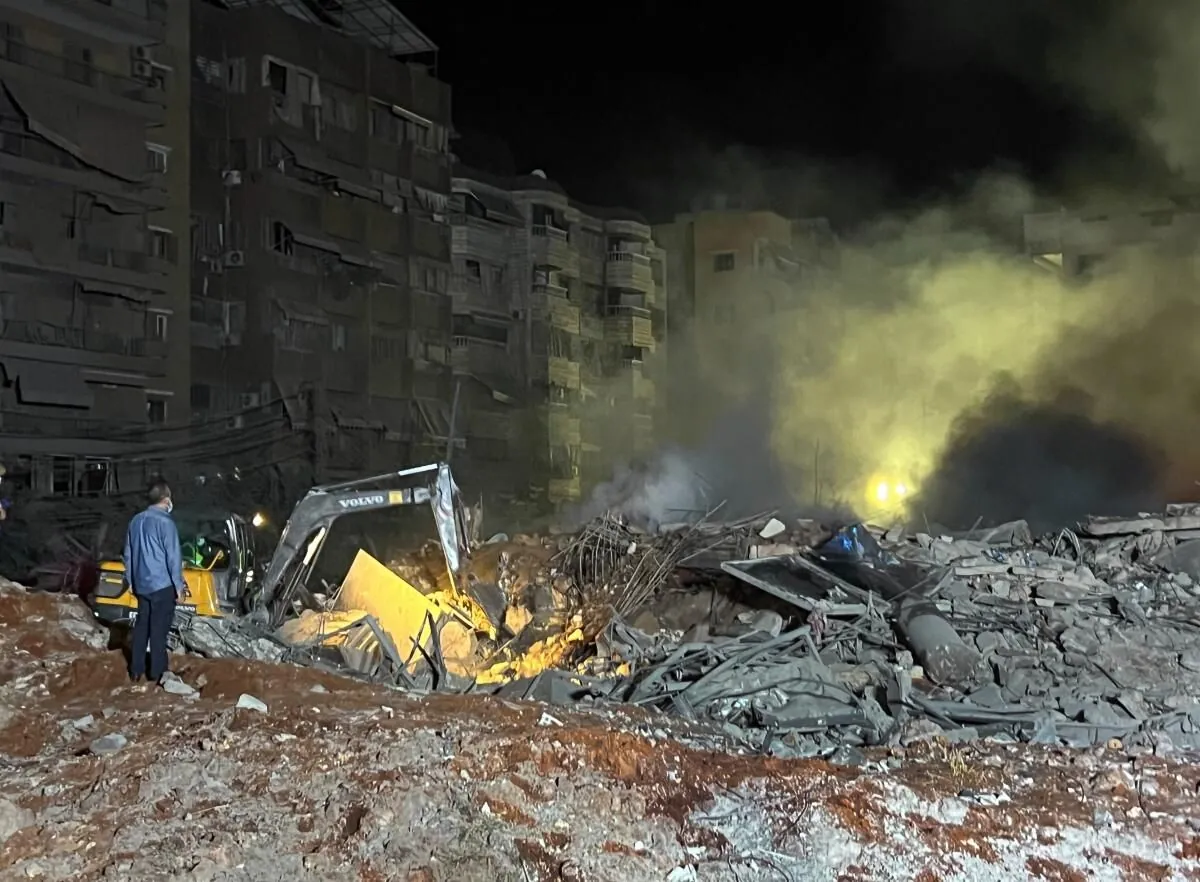Israel's Strikes on Hezbollah Reshape Middle East Dynamics
Israeli attacks on Hezbollah in Lebanon, including the killing of its leader, have disrupted the Iran-backed "axis of resistance." The conflict's expansion raises concerns about regional stability and Iran's potential responses.

In a significant escalation of regional tensions, Israeli forces have conducted a series of devastating strikes against Hezbollah targets in Lebanon, resulting in over 1,000 casualties and displacing approximately one million people. The attacks, which occurred over the past week, have dramatically altered the landscape of Middle Eastern geopolitics.
Yoav Gallant, Israel's Defense Minister, emphasized the strategic importance of these operations, stating that they send a clear message to adversaries of Israel. The strikes have not only targeted Hezbollah but also extended to Hamas in Gaza and Houthi forces in Yemen, all part of the Iran-backed "axis of resistance."

The most notable outcome of these strikes was the elimination of Hasan Nasrallah, Hezbollah's enigmatic leader. This development has sent shockwaves through the organization, which has long positioned itself as a formidable opponent to Israel. The loss of Nasrallah, coupled with the decimation of Hezbollah's leadership and operational capabilities, has left the group in disarray.
"Whoever starts a war against the state of Israel and tries to harm its citizens will pay a very heavy price."
These events draw parallels to the aftermath of the 1967 Six-Day War, which saw the decline of pan-Arabism under Gamal Abdel Nasser. Similarly, the current situation may mark a turning point for the "axis of resistance" and its influence in the region.
Israel's actions have not been limited to Lebanon. The country has also conducted operations against Hamas in Gaza and even managed to eliminate Ismail Haniyeh, a prominent Hamas leader, in Tehran. These successes demonstrate Israel's enhanced intelligence capabilities and military preparedness.
The situation has placed Iran in a precarious position. Tehran's limited response to these events has raised questions about its ability to protect its allies and maintain its strategic foothold in the region. The Islamic Republic now faces the challenge of preserving its influence in Lebanon while potentially reassessing its overall strategy.
Western leaders, including U.S. President Joe Biden, have called for restraint to prevent further escalation. However, with Israel's recent tactical victories and the Netanyahu government's emboldened stance, the conflict may already be expanding beyond initial expectations.
The repercussions of these events extend beyond immediate military concerns. Lebanon, already grappling with economic and political crises, now faces the prospect of increased instability. The power vacuum left by Hezbollah's weakening could potentially reignite sectarian tensions in the country.
Furthermore, Iran's response to these setbacks remains a critical factor. Some analysts suggest that Tehran might consider accelerating its nuclear program as a means of reasserting its position and deterring further actions against its allies.
As the situation continues to evolve, the international community watches closely. The coming weeks and months will likely shape the future of Middle Eastern geopolitics, with far-reaching implications for regional stability and global security.


































